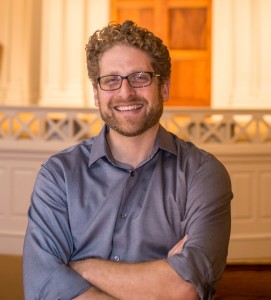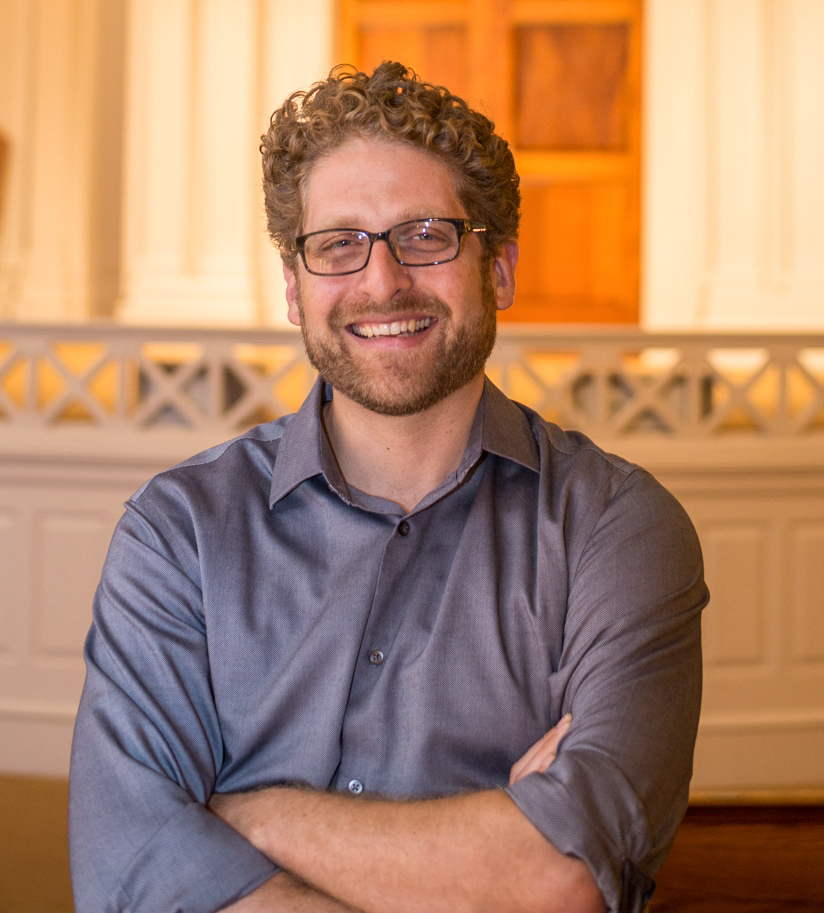Rabbi Scott Perlo

This is from the tail end of a Boston Globe article:
“I definitely like the spiritual aspect of pushing yourself further than you ever thought you could go,” Huberlie said. “I don’t think I can put my beliefs behind any particular religion right now. . . but something I missed [about church] is if you really need something, your church community will be there. For me, my CrossFit family has become that community.”
-“What Millenials Believe,” Cristela Guerra, 8/26/15
Can I fully express the depth of my Gen-X contempt at this little quotable? I do not know. Leave it to the Millenials to take whatever fulfills their emotional needs, without demanding any conviction of belief, and call it spiritual community. Spiritual commitment without spiritual convictions; what an odd mating call for an entire generation. Sigh.
Even more aggravating is that I can’t say that their infuriating spiritual poses (Overgrown Child’s Pose, Forward Bend Only If It Feels Authentic To You) are wrong. Alfred Whitehead, the polymath and philosopher responsible for Process Theology said this about the development of religion: “But certainly, when we go far enough back, belief and rationalization are completely negligible, and emotion is merely a secondary result of ritual.” (The Making of Religion , Lecture 1).
What he means is that the doing came first, not believing. It is not that our spiritual predecessors believed and brought their conviction into action; it is that they acted, and as a result came to believe. That’s how, Whitehead contends, religion came to be. I do not think this forthcoming generation sees themselves as casting about for religious wisdom; rather, deep in their hearts, I think they understand themselves as creating new religion. Even as they might clothe their inventions and inventiveness in words from the past, they understand themselves as spiritually starting anew. This is why CrossFit can be described as spiritual – it represents beginning again. It is a sign of a new adventure, undefined, except as to how it makes a person feel. These younger Jews seek to feel new, as our ancestors did in the days of old. They are at the stage of doing and, as such, are not yet interested in believing. “Mankind became artists in ritual… [and thus] Mankind was started upon its adventures of curiosity and of feeling.” They see themselves as starting over.
All of this very grouchy preamble comes as a response to the first of the propositions, the one regarding Wisdom, “In an age of globalization, Jewish institutions need to offer multiple avenues to explore chochmah, the wisdom of our sacred texts put into the context of the world’s religions and in the language of contemporary culture.”
The section continues, “Though it is true that the vast majority of Jews are Judaically illiterate (and even less competent in Hebrew language), younger Jews yearn for authenticity.” This assertion seems, at least in my own experience, quite true. However, my guess is that the meaning of the word “authenticity” differs by the individual; moreover, what many rabbis (myself included) would think of as authentic Jewish wisdom is not what these younger Jews have in mind.
When asked for Jewish wisdom, I point people to the laws of the Torah and the Talmud for, to me, it seems incontrovertible that therein lies the stored spiritual genius of our people. But the generation about which we are speaking understands judgment as the antithesis of the spiritual life! There is a major mismatch between a spiritual tradition that emphasizes law and obligation, and the radical “I” of contemporary spiritual life. This is only one of the contradictions between contemporary philosophies and our traditions. And I’m forced to ask the question: is the spiritual wisdom we have what people of this time and place seek?”
Salman Rushdie wrote a book that never quite received its due. It’s called The Ground Beneath Her Feet, and it’s a fictional tribute to the history of Rock and Roll and the rise of Madonna-like mega-stars. It’s a masterpiece; just a stunning book. Anyway, there is a scene in which Vina Apsara, the well-worshipped diva at the center of the book, prescribes a series of yogic and vedic practices for herself and her followers. At which point another character screams at her: she has, morally, religiously, sexually, abandoned every traditional Indian value possible on her rise to a stardom pursued as expression of pure authenticity and self-determination. The man screams at her and, most importantly, she ignores him completely. So what I mean is that seekers of our times may be spiritual magpies – they take what works for them. And what they stitch together from the past is always something quite new, especially for our people.
Like that man, rabbis have been screaming too: as a Jew marries someone not Jewish – and insists on an Orthodox ketubah (that was last week in our office); as the couple both baptizes and circumcises the baby boy; as I get interviewed by a Jewish reporter, asking me to help her get more Jews to respond to her Christmas cards. Often that scream is just exasperation behind office doors – God forbid to a person’s face – but God also knows that, when alone with my colleagues, I have yelled a time or two.
So I think that those of us in the Jewish learning business have to ask ourselves a few questions about Jewish wisdom. The first among these is whether or not it can survive the unbundling – to use Irwin and Brad’s phrase – of individual Jewish practices from the entire system of Torah.
Actually, forget the word “survive.” Let me ask it differently: what is the Jewish wisdom that is going to thrive even when it is disconnected from the system of Torah writ large? Do we have that? Can we teach that?
Look, I’ll just come out and say that we have, as a contemporary civilization, been very theologically lazy. We’ve either insisted on beliefs of the past that have since become sclerotic, or fig-leafed our disconnection from those beliefs while yelling that the Jewish people have left Judaism. I’m not accusing other people – I’m indicting myself.
It’s time to Teach What We Know, and I’m not sure I always know what Jewish wisdom is for the world beyond me and those who practice like me. It should be back to school for me and anyone else who feels the same way, both figuratively and literally, to find the time and space to find wisdom again.
_______________
Rabbi Scott Perlo is the Associate Director of Jewish Programming of Sixth & I Historic Synagogue in Washington D.C. Engaging young professionals across the widest possible spectrum of Jewish background and connection, Scott has pioneered techniques for bringing classic Jewish texts, propositions of meaning, and communal practices to an ever broader Jewish and interfaith community.


